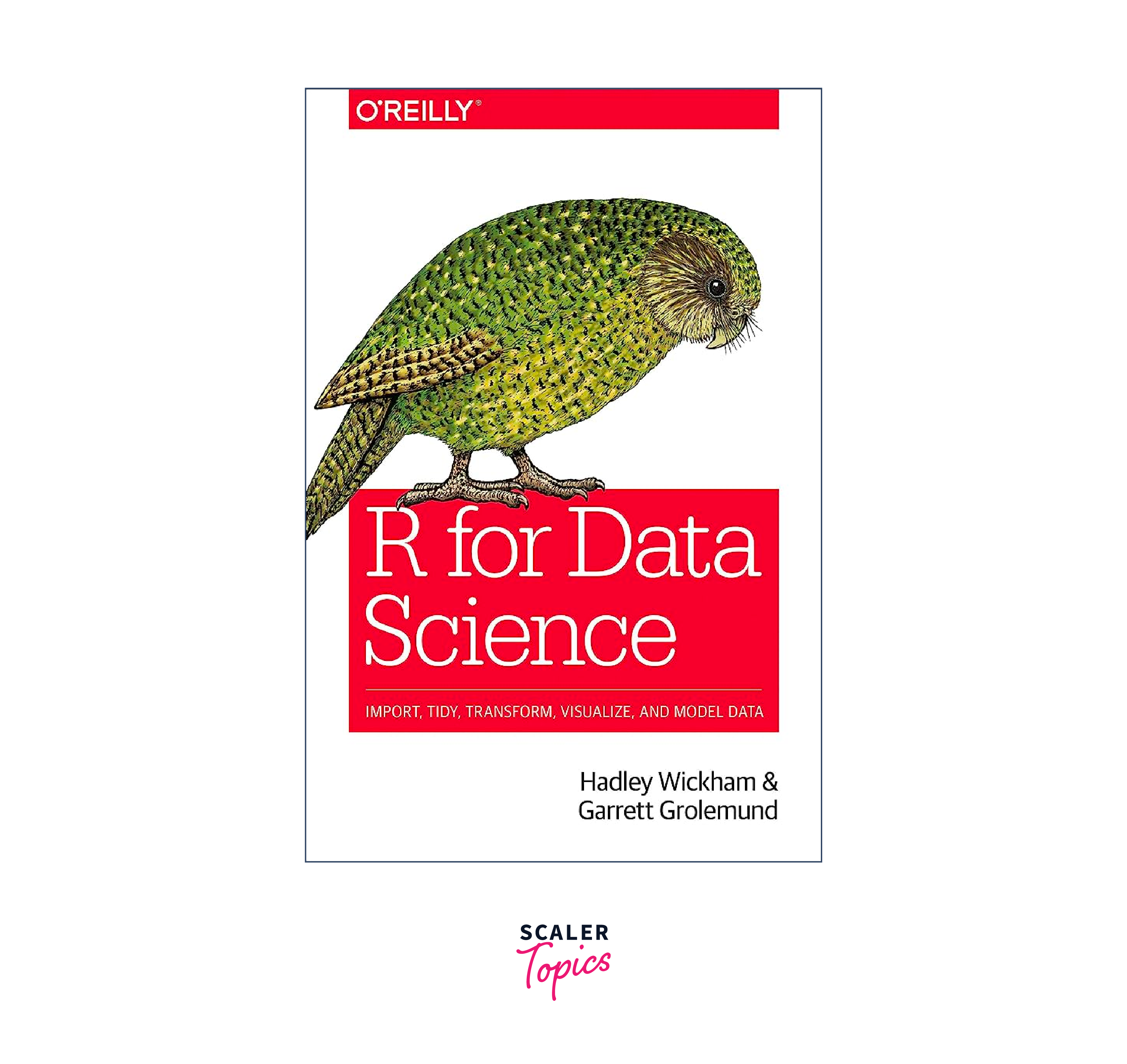Top R Programming Books in 2023
Overview
R Programming is a powerful and widely used language for data analysis, statistical computing, and graphical representation. It was developed by Ross Ihaka and Robert Gentleman at the University of Auckland, New Zealand, in the early 1990s. Since then, it has gained immense popularity among data scientists, statisticians, and researchers due to its open-source nature, extensive libraries, and active community support. R offers a wide range of functionalities for data manipulation, visualization, and modelling, making it an indispensable tool for those working with data.
This article will explore some of the best R programming books that cater to individuals at various skill levels. These books cover topics ranging from basic programming concepts to advanced data manipulation and machine learning techniques.
12 Top R Programming Books
1. "R for Data Science" by Hadley Wickham and Garrett Grolemund
R for Data Science is a must-have book for anyone looking to start their journey in data science with R. Written by two prominent R developers, Hadley Wickham, and Garrett Grolemund, this book covers the essentials of data manipulation, visualization, and modelling with R. It uses a practical approach. It provides hands-on examples to help readers grasp the concepts effectively.
2. "Advanced R" by Hadley Wickham
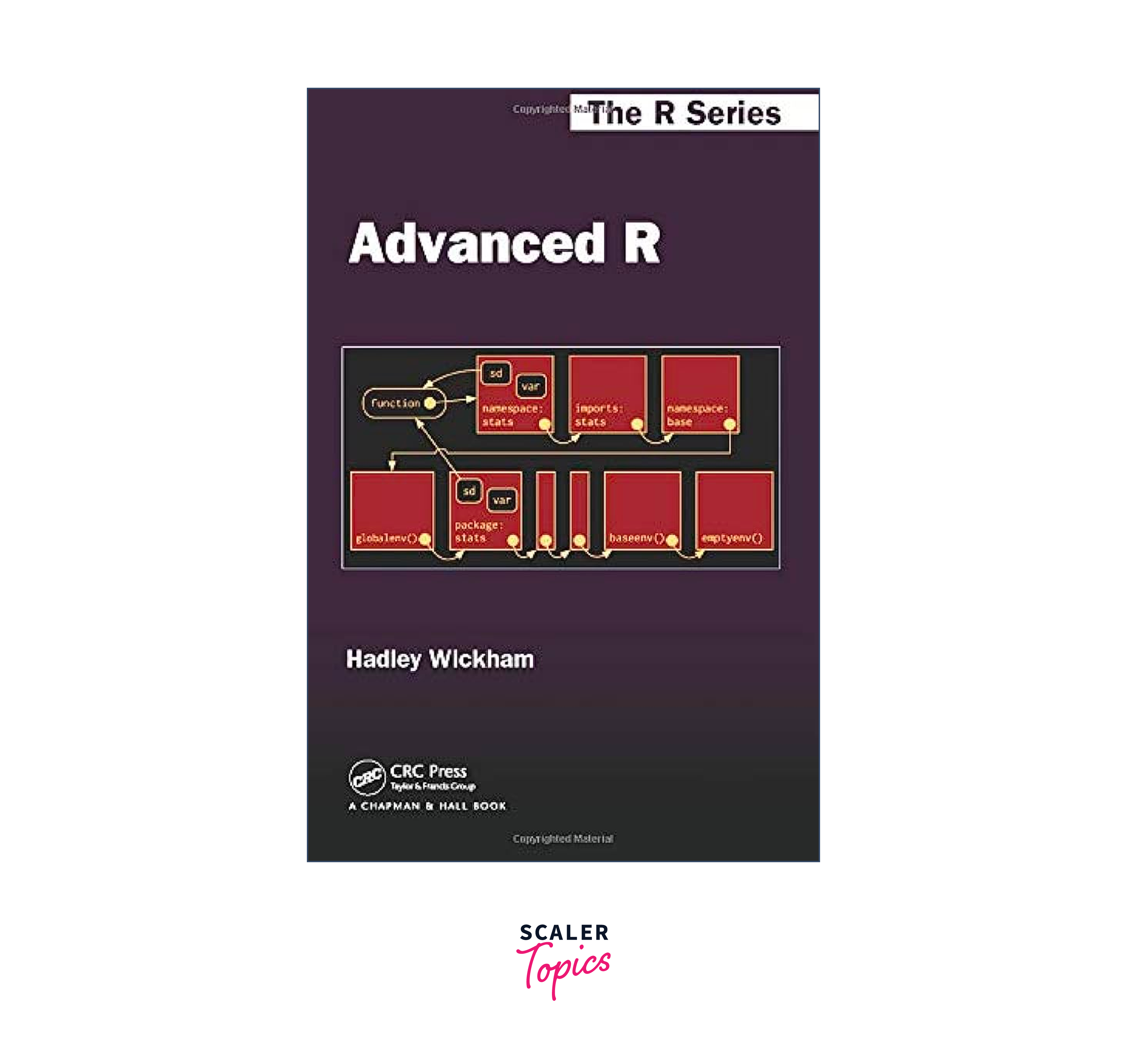
For those who want to deepen their understanding of R's underlying mechanisms and become proficient in writing efficient R code, Advanced R by Hadley Wickham is invaluable. The book delves into various advanced topics such as functional programming, object-oriented programming, and memory management in R. It equips readers with the tools to write clean and efficient code in R.
3. "ggplot2: Elegant Graphics for Data Analysis" by Hadley Wickham
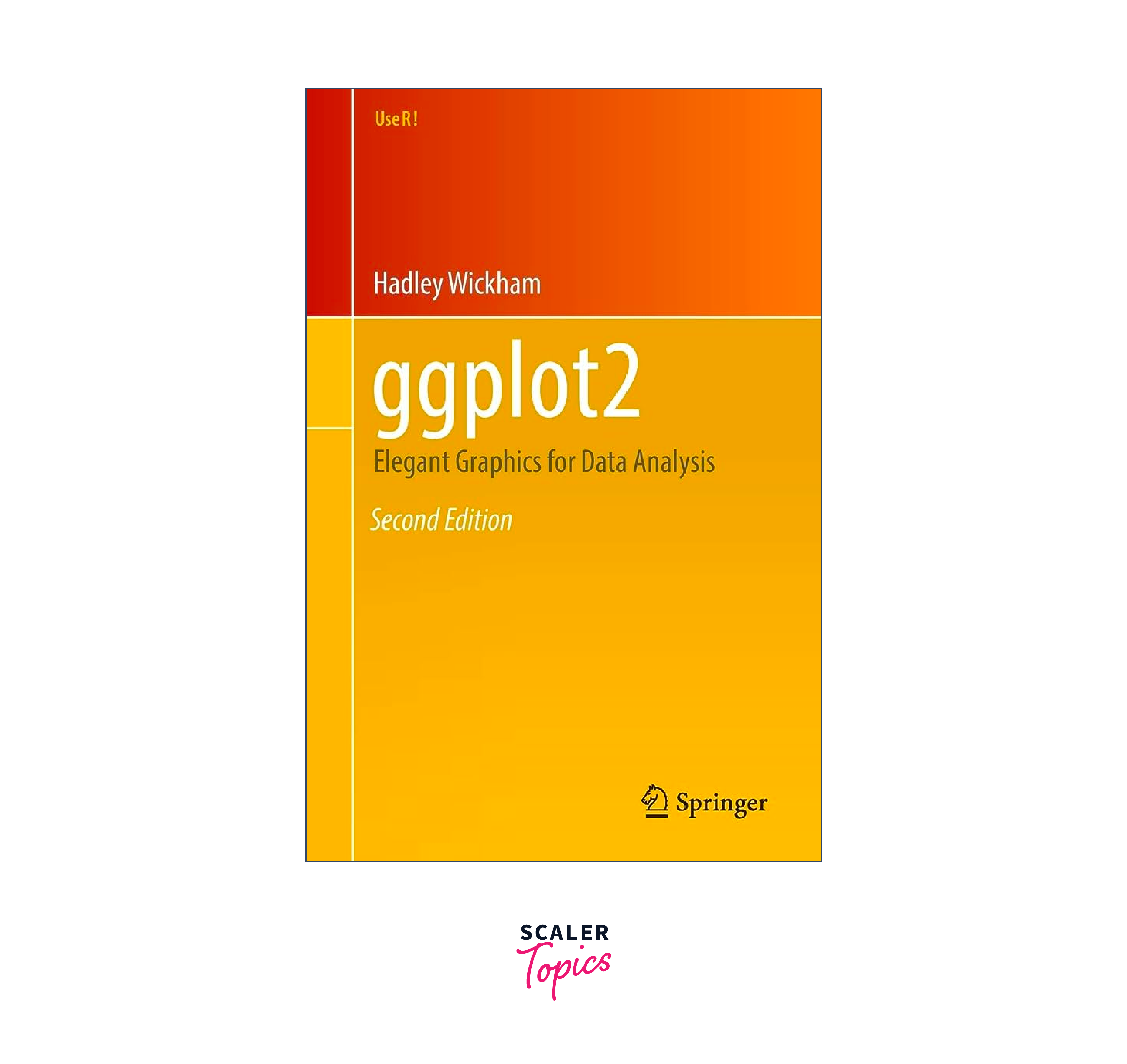
Data visualization is an essential aspect of data analysis, and ggplot2 by Hadley Wickham is the go-to book for mastering data visualization in R. This book focuses on the ggplot2 package, which is a powerful and flexible tool for creating visually appealing and informative graphs in R. Whether you are a beginner or an experienced data analyst, this book will enhance your data visualization skills significantly.
4. "Hands-On Programming with R" by Garrett Grolemund
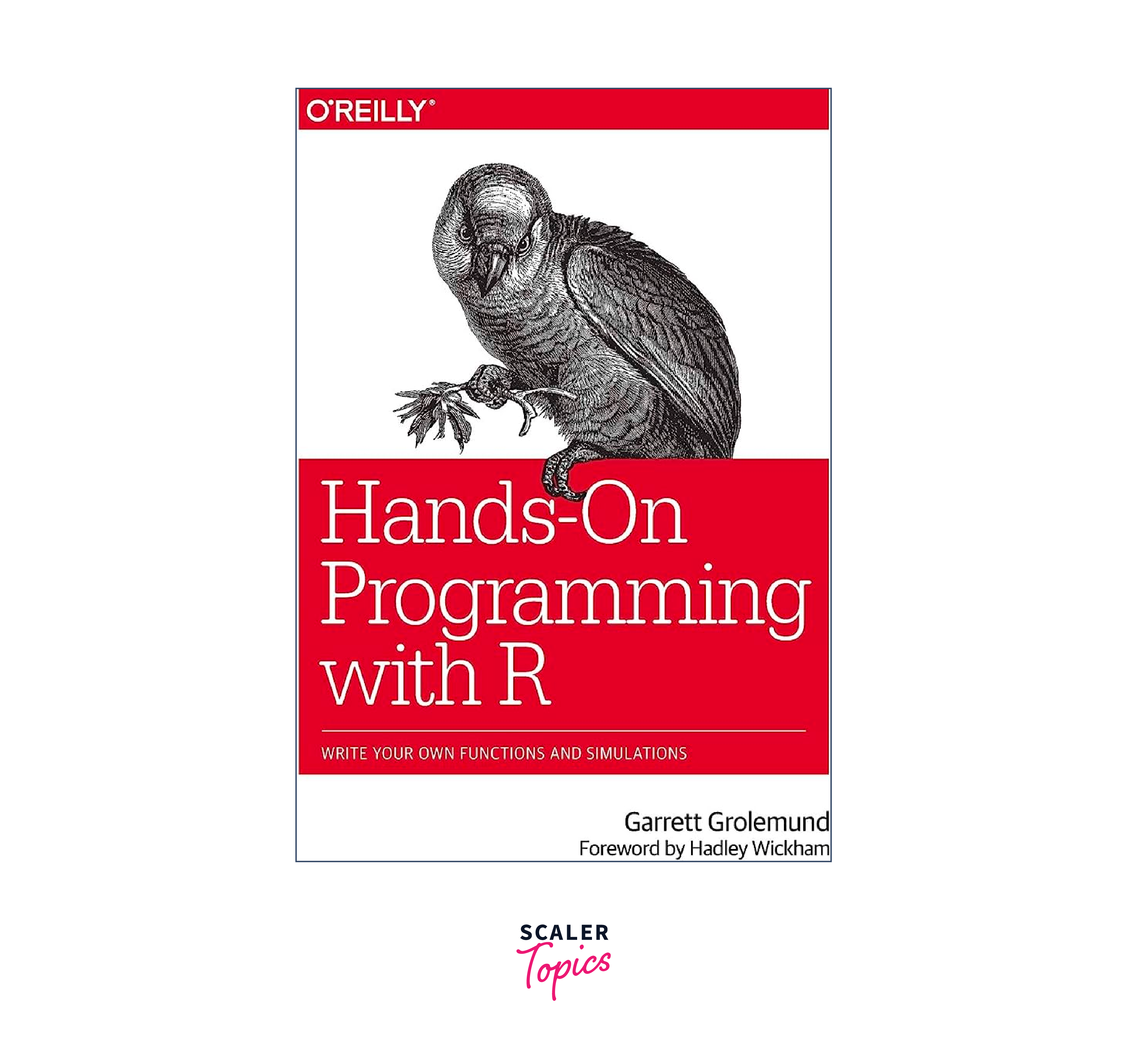
Hands-On Programming with R is a practical guide that helps beginners learn R programming through hands-on exercises and projects. Garrett Grolemund straightforwardly introduces programming concepts and gradually introduces data manipulation, visualization, and statistical analysis with R. This book is an excellent starting point for anyone new to R and programming in general.
5. "Machine Learning with R" by Brett Lantz
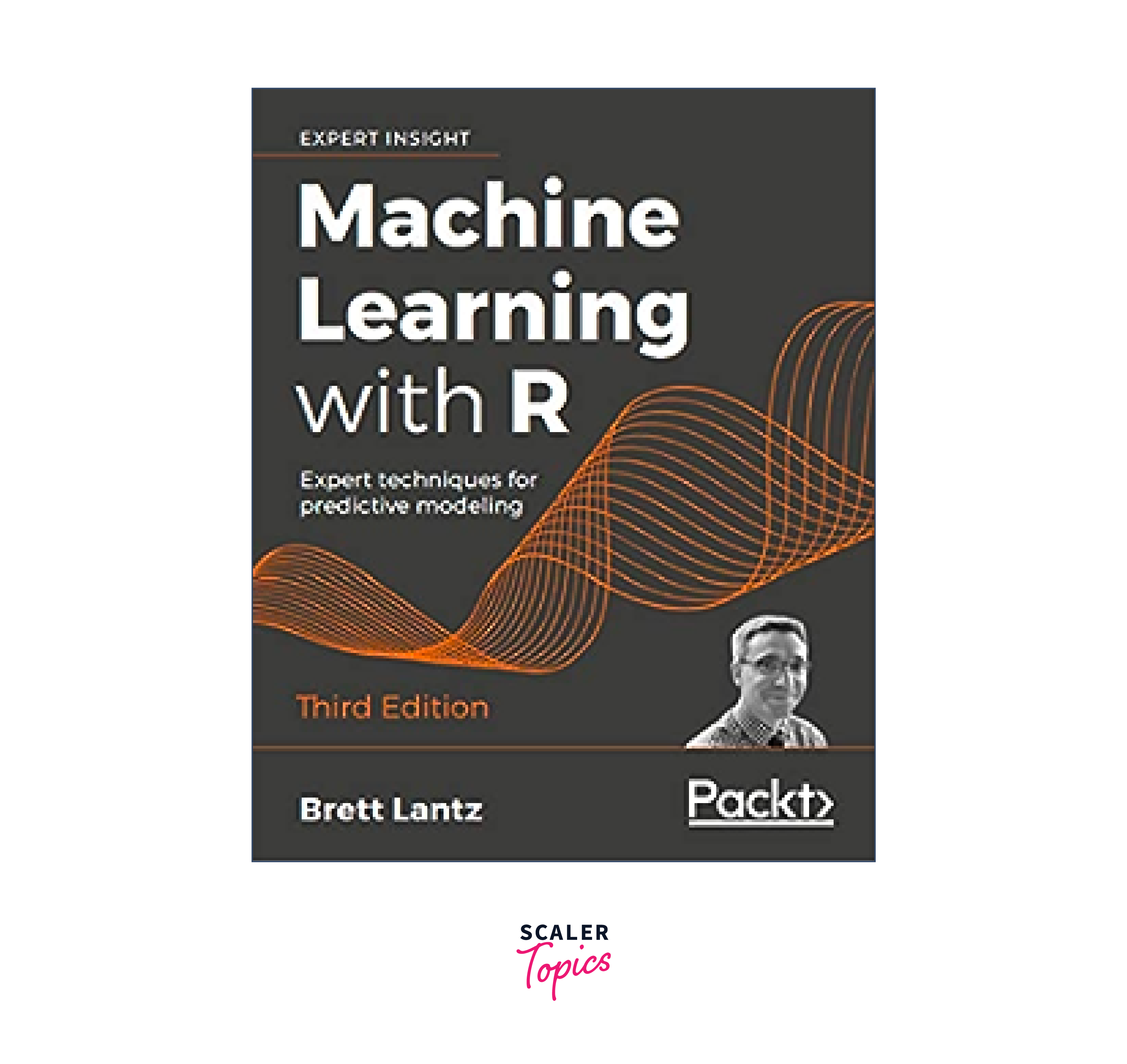
Machine learning is a rapidly growing field, and R provides numerous libraries and tools to implement machine learning algorithms effectively. Machine Learning with R by Brett Lantz offers a comprehensive introduction to machine learning concepts and practical examples of building machine learning models using R. The book covers a wide range of algorithms, making it suitable for beginners and intermediate users alike.
6. "R Programming for Data Science" by Roger D. Peng
 R Programming for Data Science provides a comprehensive introduction to data science using R. It covers data manipulation, visualization, statistical analysis, and machine learning, making it a complete guide for data enthusiasts. Roger D. Peng, a renowned data scientist, straightforwardly explains complex concepts, making this book accessible to readers with various levels of expertise.
R Programming for Data Science provides a comprehensive introduction to data science using R. It covers data manipulation, visualization, statistical analysis, and machine learning, making it a complete guide for data enthusiasts. Roger D. Peng, a renowned data scientist, straightforwardly explains complex concepts, making this book accessible to readers with various levels of expertise.
7. "R Graphics Cookbook" by Winston Chang
(Amazon Link)
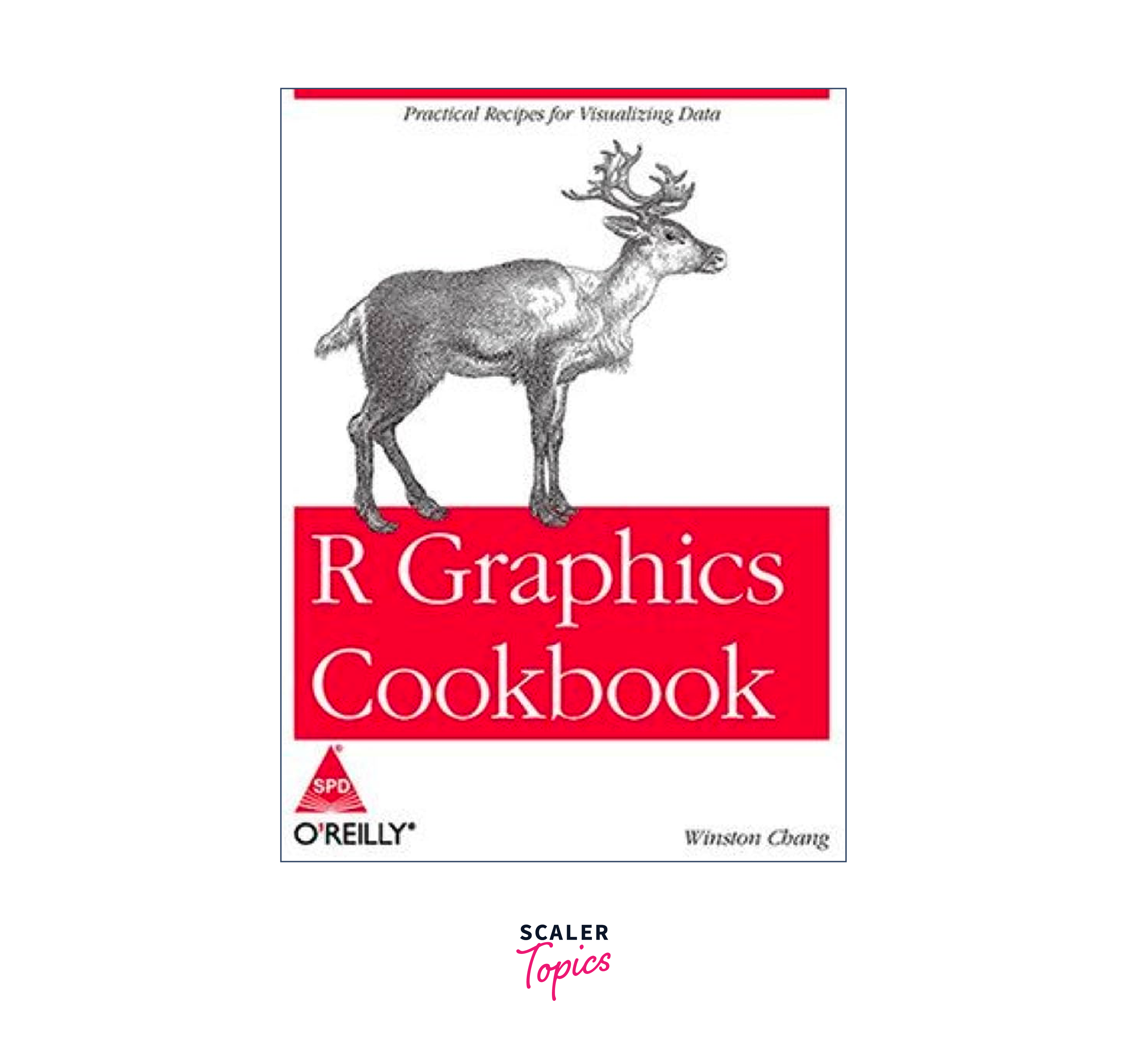 R Graphics Cookbook is an excellent resource for mastering data visualization in R. Winston Chang presents a collection of recipes for creating a wide variety of graphs and charts using R's graphical packages. The book is packed with practical examples and step-by-step instructions, making it easy for readers to learn the art of data visualization effectively.
R Graphics Cookbook is an excellent resource for mastering data visualization in R. Winston Chang presents a collection of recipes for creating a wide variety of graphs and charts using R's graphical packages. The book is packed with practical examples and step-by-step instructions, making it easy for readers to learn the art of data visualization effectively.
8. "Advanced R 4 Data Programming and the Cloud: Using PostgreSQL, AWS, and Shiny" by Matt Wiley and Joshua F. Wiley
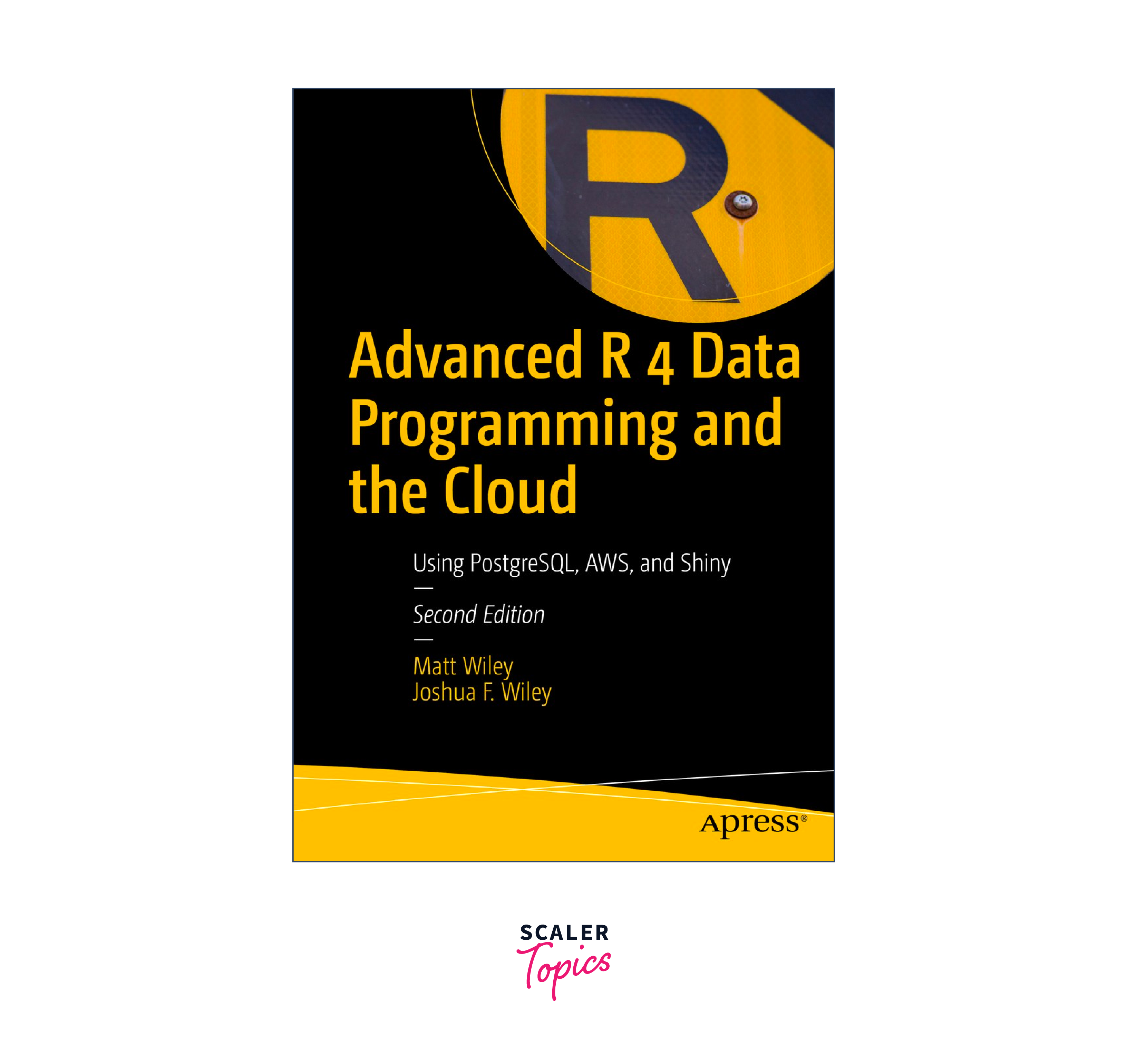
Advanced R 4 Data Programming and the Cloud: Using PostgreSQL, AWS, and Shiny is a book that focuses on optimizing data manipulation tasks in R. Matt Wiley and Joshua F. Wiley covers various techniques to streamline data manipulation operations, enabling users to work efficiently with large datasets. This book is a valuable resource for data analysts and researchers who deal with extensive data processing in their work.
9. "Text Mining with R: A Tidy Approach" by Julia Silge and David Robinson
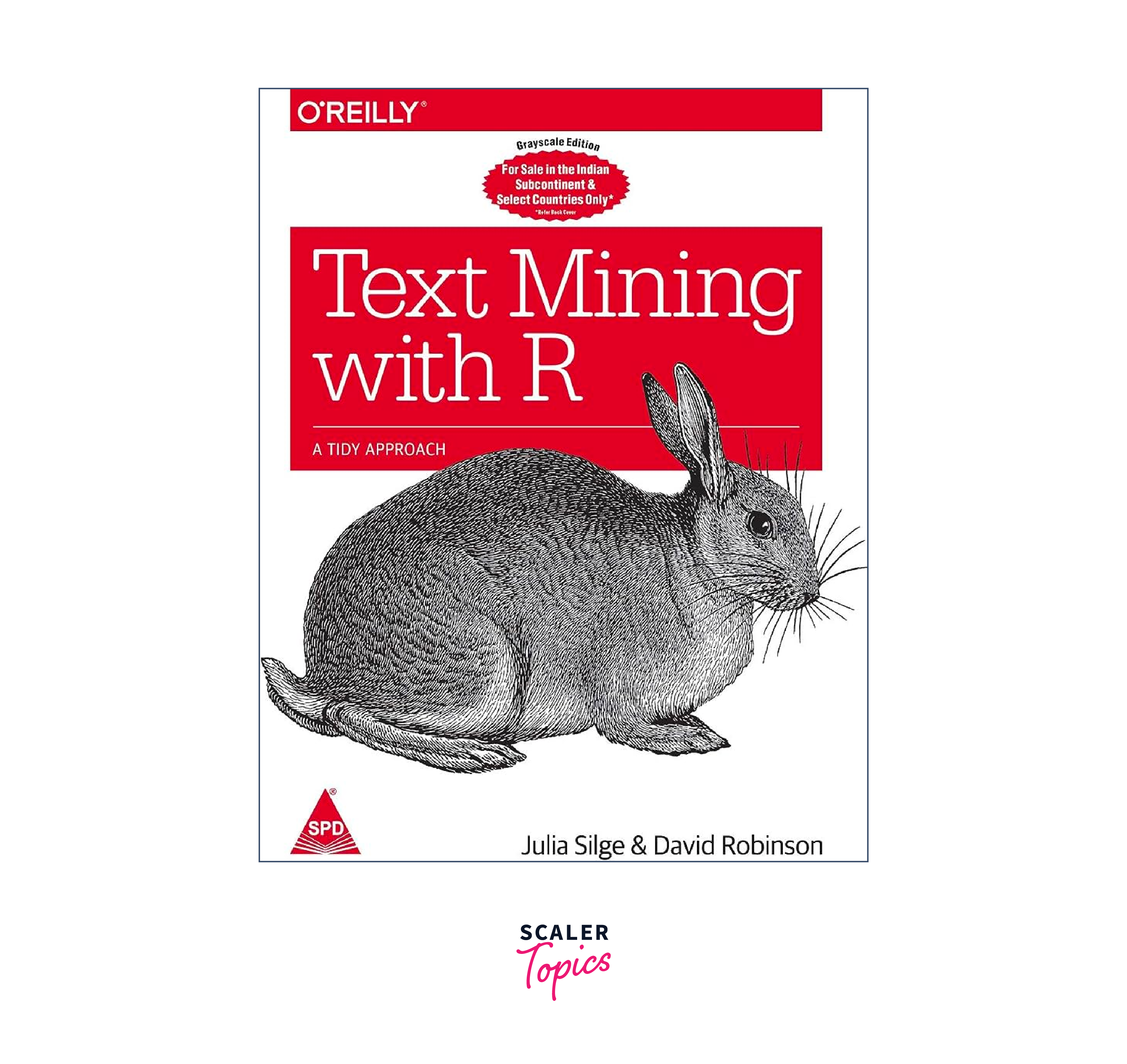
For those interested in extracting insights from textual data, Text Mining with R is the perfect guide. Julia Silge and David Robinson walk readers through the process of text mining using R, focusing on the principles of tidy data. The book covers techniques for text processing, sentiment analysis, and text visualization, making it a valuable resource for those working with textual data.
10. "Mastering Shiny" by Hadley Wickham, Winston Chang, Joe Cheng, and Barbara Borges Ribeiro
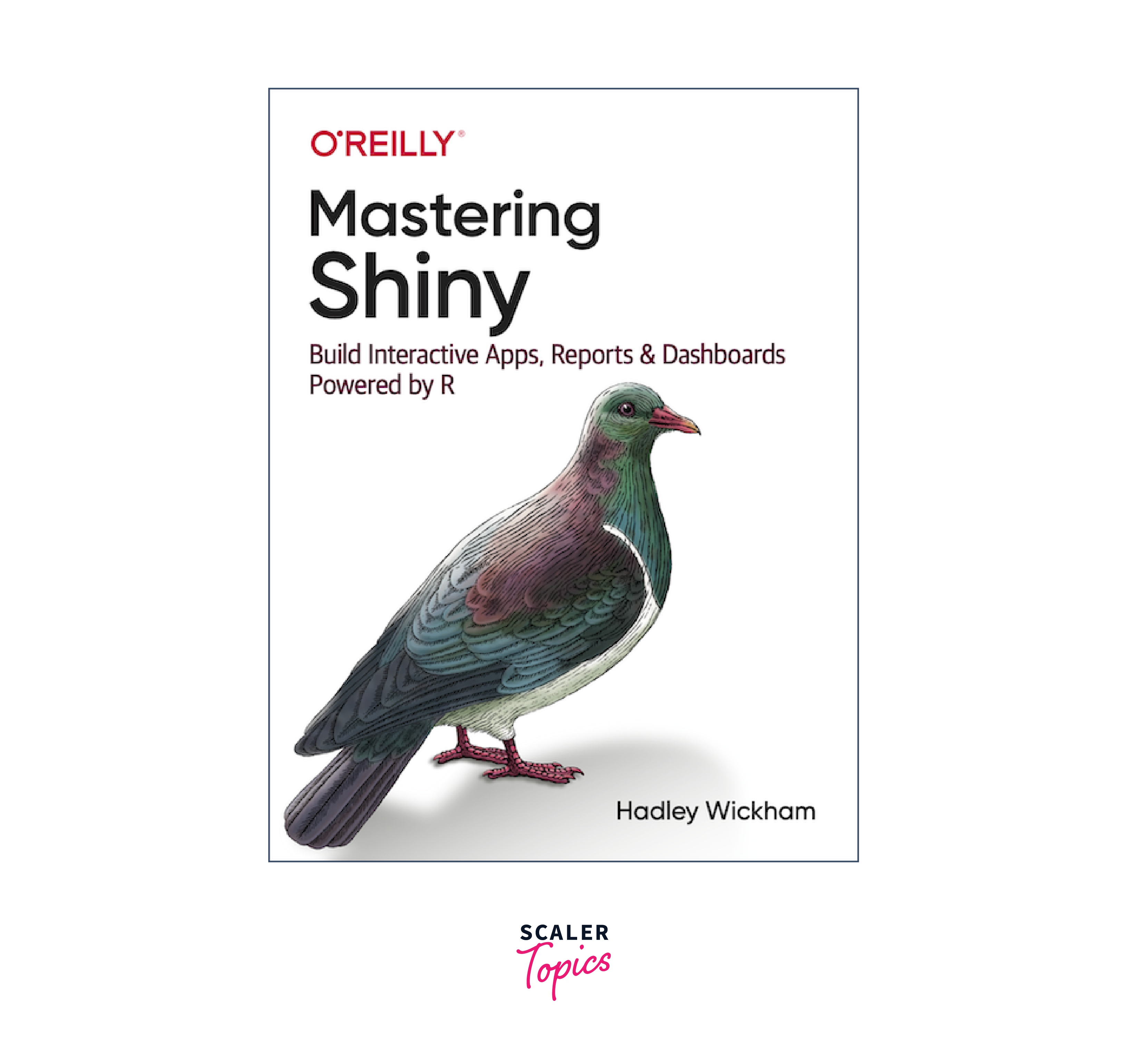
Shiny is a web application framework for R that allows users to create interactive and web-based data visualizations. Mastering Shiny is a comprehensive guide to building interactive web applications using Shiny. Written by experts in the field, including Hadley Wickham, this book covers various topics such as reactive programming, layout design, and advanced customization to create powerful Shiny applications.
11. "Applied Spatial Data Analysis with R" by Roger S. Bivand, Edzer J. Pebesma, and Virgilio Gómez-Rubio
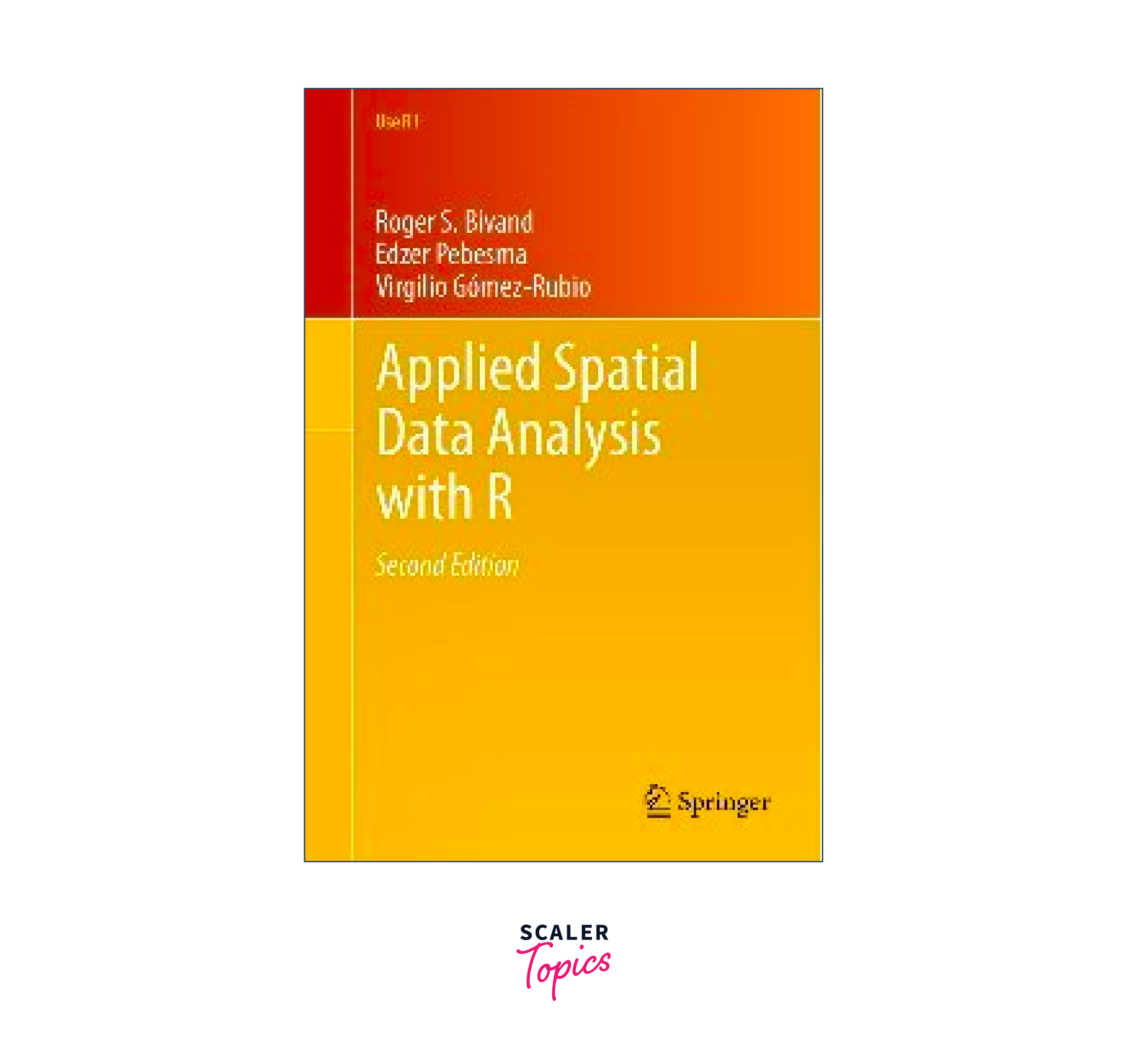
For those interested in spatial data analysis and geographical information systems (GIS), Applied Spatial Data Analysis with R is a comprehensive guide. The book covers spatial data handling, visualization, and statistical analysis using R's spatial packages. It is a valuable resource for researchers and professionals working with geographic data.
12. "R Packages" by Hadley Wickham and Jenny Bryan
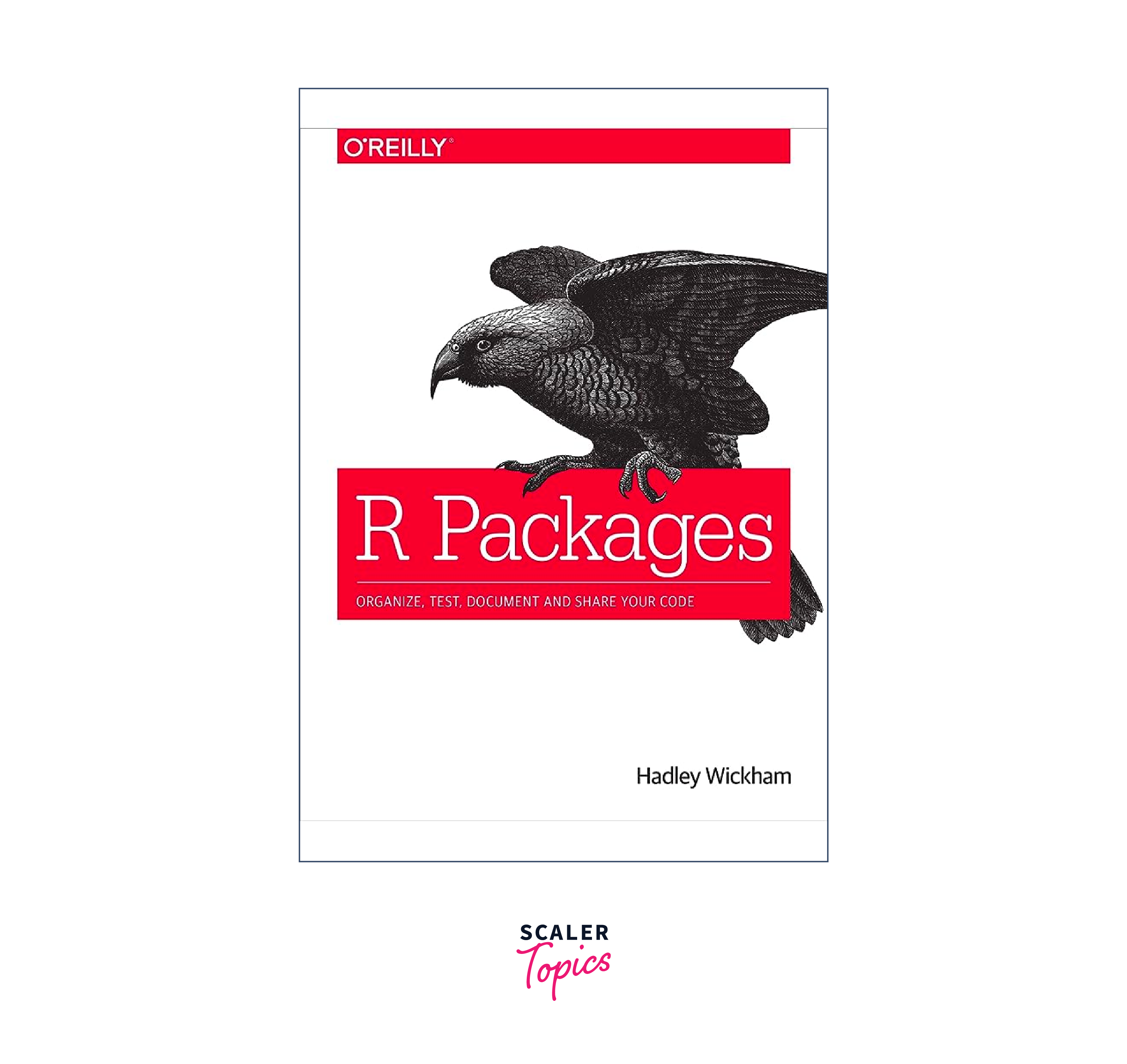
R Packages is a book that focuses on creating, documenting, and distributing R packages. Written by Hadley Wickham and Jenny Bryan, this book provides a step-by-step guide to package development, making it an essential resource for R users who want to share their work as packages with the R community.
FAQs
Q. Is R difficult to learn for beginners?
A. Learning any programming language can be challenging initially, but R is known for its user-friendly syntax and extensive documentation. For beginners with little or no programming experience, starting with "Hands-On Programming with R" by Garrett Grolemund is highly recommended.
Q. Are these books suitable for self-study?
A. Yes, all the mentioned books are well-suited for self-study. They are written with a focus on providing clear explanations and practical examples, making them accessible to readers who prefer to learn at their own pace.
Q. Can I use R for big data analysis?
A. While R is excellent for data analysis, there may be more efficient choices for handling large datasets. Tools like Apache Hadoop or Apache Spark are more commonly used for big data analysis. However, R can be integrated with these tools for specific tasks.
Q. Are there any books specifically for learning R for business analytics?
A. Yes, there are books tailored specifically for using R in the context of business analytics. One such book is "R for Business Analytics" by A. Ohri. This book covers various business analytics concepts and demonstrates how R can be used to perform data analysis, predictive modelling, and visualization for business-related tasks.
Q. Are there any books focusing on time series analysis with R?
A. If you are interested in time series analysis using R, "Forecasting: Principles and Practice" by Rob J Hyndman and George Athanasopoulos is highly recommended. The book covers time series forecasting methods and demonstrates how to implement them using R, providing practical insights into analyzing time-dependent data.
Q. Recommend a good book for learning R for bioinformatics.
A. "Bioinformatics and Computational Biology Solutions Using R and Bioconductor" by Robert Gentleman, Vincent Carey, and Wolfgang Huber is an excellent resource for learning R in the context of bioinformatics. The book focuses on using R and Bioconductor, a specialized set of R packages for bioinformatics, to analyze and interpret biological data.
Q. I have some experience with other programming languages. Is there a book that can help me transition to R smoothly?
A. Yes, "R Programming for Data Science" by Roger D. Peng and Elizabeth Matsui is designed to help individuals with prior programming experience transition to R smoothly. The book emphasizes the similarities and differences between R and other languages and provides practical examples to facilitate the learning process for those with a programming background.
Q. Is R suitable for statistical analysis?
A. Yes, R is widely regarded as one of the best programming languages for statistical analysis. It provides an extensive set of statistical functions and packages, making it a preferred choice for statisticians, data analysts, and researchers to perform various statistical tests and analyses.
Q. Can I create interactive data visualizations in R?
A. Yes, R offers various packages and frameworks, such as Shiny and Plotly, that allow users to create interactive and dynamic data visualizations. These interactive visualizations can be embedded in web applications and presentations, enhancing the communication of data insights.
Q. Are there resources to learn R for specific industries, like finance or healthcare?
A. Yes, there are specialized books and online resources available that focus on using R in specific industries. For example, "Financial Analytics with R" by Mark J. Bennett and Dirk L. Hugen and "R for Medicine and Biology" by Paul D. Lewis cater to the needs of professionals in the finance and healthcare sectors, respectively.
Q. Can I use R for web scraping?
A. Yes, R has several packages, such as rvest and httr, that allow users to scrape data from websites. Web scraping in R enables data analysts to extract data from web pages and use it for further analysis and visualization.
Q. What are some popular online resources for learning R?
A. Apart from books, there are numerous online resources available for learning R. Websites like DataCamp, Coursera, and Udemy offer R programming courses with hands-on exercises and projects. The official R website r-project.org provides comprehensive documentation and tutorials for beginners.
Q. Is R compatible with other programming languages?
A. Yes, R can be integrated with other programming languages such as Python, Java, and C++. Packages like reticulate and Rcpp allow users to call functions written in other languages from within R and vice versa. This integration enables users to leverage the strengths of multiple languages in their projects.
Q. Can I build machine learning models in R without extensive programming knowledge?
A. Yes, R provides several user-friendly machine learning packages, such as caret and randomForest, that allow users to build machine learning models with minimal programming knowledge. These packages abstract away the complexity of the underlying algorithms, making it easier for non-programmers to use them effectively.
Q. How can I contribute to the R community?
A. There are several ways to contribute to the R community. You can actively participate in R-related forums and mailing lists, share your R packages on CRAN (Comprehensive R Archive Network), contribute to existing R packages on GitHub, and write blog posts or tutorials to help others learn R.
Conclusion
- Learning R programming can open up possibilities for individuals interested in data analysis, visualization, and machine learning.
- The books in this article are some of the top resources available to help you master R and its various applications. Whether you are a beginner looking to get started or an experienced data scientist aiming to expand your skills, these books cater to a wide range of audiences.
- To recap, here are the top R programming books covered in this article:
- "R for Data Science" by Hadley Wickham and Garrett Grolemund
- "Advanced R" by Hadley Wickham
- "ggplot2: Elegant Graphics for Data Analysis" by Hadley Wickham
- "Hands-On Programming with R" by Garrett Grolemund
- "Machine Learning with R" by Brett Lantz
- "Data Science with R" by Roger D. Peng
- "R Graphics Cookbook" by Winston Chang
- "Efficient Data Manipulation with R" by Matt Wiley and Joshua F. Wiley
- "Text Mining with R: A Tidy Approach" by Julia Silge and David Robinson
- "Mastering Shiny" by Hadley Wickham, Winston Chang, Joe Cheng, and Barbara Borges Ribeiro
- Pick the one that aligns best with your learning goals and embark on an exciting journey of exploring the vast possibilities of R programming. Happy coding!

